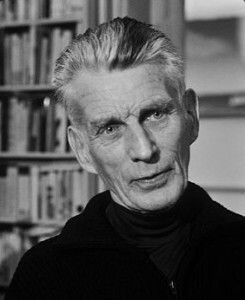At the Fringe
Anna Aslanyan
Whenever I go to the Edinburgh Fringe, I wish it was 1966 so I could watch the premiere of Rosencrantz and Guildenstern Are Dead. I’ve been going for over a decade, and although there have been some good shows, I haven’t yet seen anything that made anyone instantly famous. This year I watched a less renowned Stoppard play, The Real Inspector Hound, a farce revolving around a dead body under a sofa. When he started writing it in 1960, Stoppard didn’t know whose body it was; coming back to it in 1967, he made his main characters, Moon and Birdboot, theatre critics and immediately resolved the problem. In the production by the English College in Prague, Birdboot, a reviewer with ‘some small name for the making of reputations’, tries to kiss Moon (played by a woman); otherwise there are no surprises.
Actors, a comedy written and performed by the Dublin-based Underscore Theatre Company, centres not on second-rank critics, but on second-rate thespians. An amateur group is about to perform Hamlet: everything goes wrong, the lead is missing and the delusional director threatens to step in. Rosencrantz and Guildenstern arrive together, wearing semitransparent tights, fighting over the interpretation of their characters. According to one, ‘Rosencrantz is gay for Guildenstern’; the other sees Guildenstern as ‘the gay one’. ‘In Shakespeare, someone is always gay somewhere.’ They cop off with each other in the end.
Unlike Stoppard, Artaud is rarely performed, so it was interesting to see the Lincoln Company’s take on his works. I had to walk through more Shakespeare – A Midsummer Night’s Dream was on in the garden outside – to get to A Modernist Event. The show is based on The Seashell and the Clergyman, a 1928 surrealist film; The Cenci, an adaptation of Shelley’s drama staged by Artaud in 1935; and The Spurt of Blood, a short 1927 drame surréaliste about the end of the world. The five players (all women, and joined in the prologue by a skeleton called Clytemnestra) do their best to realise Artaud’s intention ‘to return to the theatre that total liberty which exists in music, poetry, or painting, and of which it has been curiously bereft’.
In his essay ‘Situation of the Flesh’, Artaud says: ‘For me the word Flesh means above all apprehension, hair standing on end, flesh laid bare.’ There was a lot of that in A Modernist Event. During The Cenci, after asking everyone to remove their shoes and socks, the actresses turned into ‘creatures burning to devour each other’ as well as the audience. My big toe was nibbled; a girl two seats away from me was carried onstage and subjected to the Theatre of Cruelty.
On the whole, tradition prevailed at the Fringe, doubly so in Shakespeare for Breakfast, which has been running for more than twenty years. This year’s play (‘a completely brand new storyline for Shakespeare’s characters’) was written for C theatre by Tom Crawshaw, who has been compared to Stoppard; its themes included the Scottish referendum and social networks. ‘To be or not to be #goodquestion’ went down well; so did ‘Once more unto the beach, dear friends,’ from a Prince Harry lookalike with a towel. Not quite ‘Life is a gamble, at terrible odds – if it was a bet you wouldn’t take it,’ but still.
